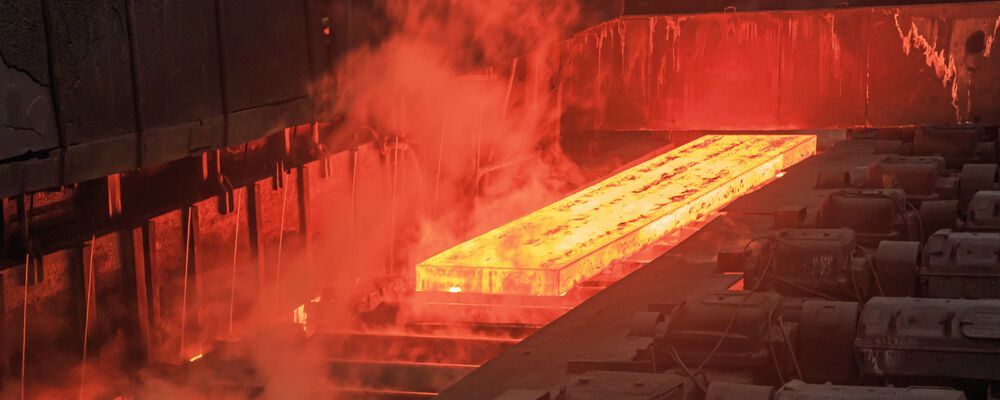The extreme environmental conditions in steel processing place high demands on the components used. The Quick-Flex elastomer couplings from Lovejoy, a Timken brand, ensure torque transmission when driving the roller tables in the hot rolling mill.
In steel processing, the molten pig iron obtained in the blast furnace is processed into crude steel in converters in the steelworks. The crude steel is then cast into slabs in continuous casting plants. These are then rolled and formed into coils. Roller conveyors or roller conveyors are used to transport the red-hot slabs, which are around 10 meters long and weigh 25 tons. Due to their high temperatures, the slabs must not come to a standstill, as this would damage the transporting rollers. The rolled material must therefore be constantly moved on the rollers until it has cooled down or the next processing step is imminent.
The reliability of the components plays a major role here: “If a coupling fails on the roller tables, you can continue working until the next planned stop, but you run the risk of damaging the roller,” says Detlef Peick, Business Development Manager for Couplings at R+L Hydraulics. “This ultimately results in longer downtimes or costs for replacing the roller during the subsequent repair. If you take the roller conveyor out of operation, you avoid damaging the roller, but then create a bottleneck for the rest of production, as the downstream part of the system cannot be used.”


